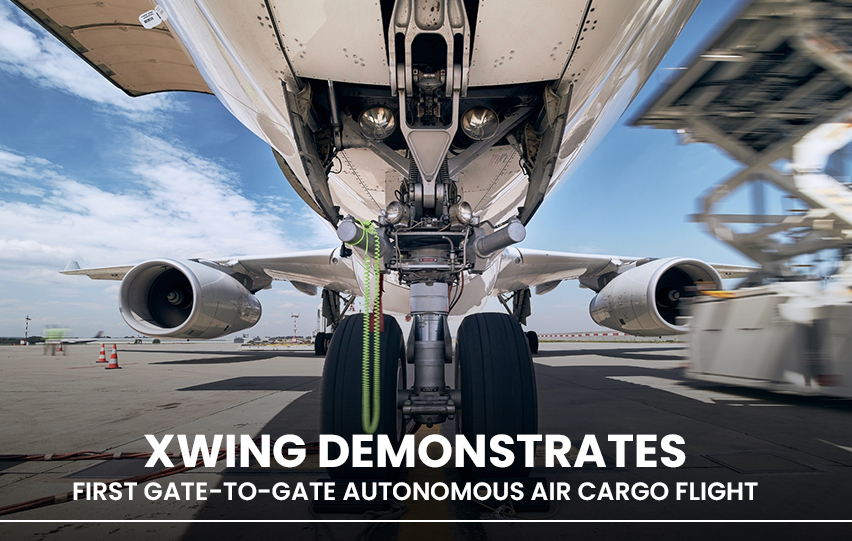With a gate-to-gate autonomous demo flight of cargo aircraft, Xwing, an aerospace and software company based in San Francisco, claims aviation first.
Xwing is attempting to incorporate autonomous technologies for regional air cargo, a space that has been underestimated in the automation global race. But it is an interesting entry point for autonomous air transport due to its sub-500 mile predictable routes and commercial value.
The company is hoping that its human-operated technology stack, which seamlessly connects with existing aircraft to allow regional pilotless flight, would help it ramp up in the face of rising unmet logistics demand.

Marc Piette, Xwing’s Founder and CEO, said "Over the past year, our team has made significant advancements in extending and refining our AutoFlight system to seamlessly integrate ground taxiing, take-offs, landings, and flight operations, all supervised from our mission control center via redundant data links.”
"Additionally, our piloted commercial cargo operations have been delivering critical supplies including COVID-19 vaccines, to remote communities since December 2020,” he added.
The Federal Aviation Administration has granted the company permission to conduct autonomous flight operations under a research and development certificate. It was widened in August 2020 to include a separate flight permit for optionally piloted aircraft (OPA).
Piette said, “We set up what’s effectively an airline.” Xwing has supported this important flight time into an algorithm of training and gathers data, like the frequency of pilot communication using air traffic controllers and the kinds of instructions the craft gets, by redeveloping certain aircraft with sensors for data collection.
A Cessna Grand Caravan 208B recently made headlines when it left the gate, taxied, took off, landed, and returned to the gate all on its own. Both air traffic control communications were performed from the ground, and the flight was remotely controlled.
Xwing intends to use its technologies for e-commerce logistics, making small airports more accessible and cargo delivery more effective.
According to the latest figures, by 2025, there will be a global shortage of 34,000 available pilot posts. With the rising need for fast distribution, logistics are also being challenged.
With e-commerce sales expected to reach $4.2 trillion, the growth of e-commerce is inextricably linked to the performance of the air cargo sector.
Last year, Marc Piette said "The future of air transportation is autonomous. We believe the path to full autonomy begins with the air cargo market and involves remote operators supervising fleets of unmanned aircraft."
















